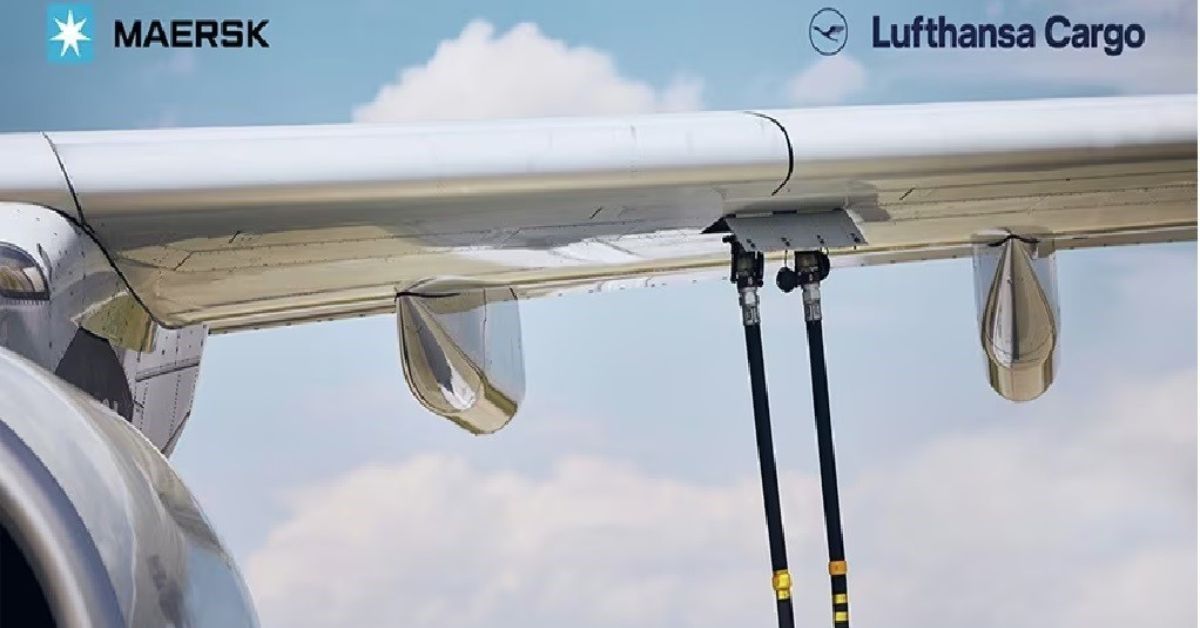Lufthansa Cargo and A.P. Moller – Maersk (Maersk) have agreed to promote airfreight decarbonization through the use of Sustainable Aviation Fuel (SAF). Lufthansa Cargo will use 400 metric tonnes of SAF on behalf of Maersk in the remainder of 2024, making a significant contribution to the year-end business with historically large cargo volumes. The estimated decrease in CO2 emissions amounts to at least 1,200 metric tons.
Maersk will allocate the achieved emissions reduction to one of its European airfreight customers as part of its ECO Delivery Air product. ECO Delivery Ocean, Air and Inland are products offered by Maersk aiding in reducing GHG emissions when compared to conventional fossil energy sources. Maersk is the first company that has net zero targets validated by the Science-Based Targets Initiative (SBTi) using maritime guidance.
The SAF used by Lufthansa Cargo is produced from biogenic residues such as used cooking oil using the HEFA (Hydroprocessed Esters & Fatty Acids) process. Through the Lufthansa Group, Lufthansa Cargo offers SAF from established suppliers from Europe. Since September 2021, all Lufthansa Cargo customers have been able to have their freight transported more sustainably by choosing the Sustainable Choice add-on service.
Over its entire lifecycle (production, delivery process, combustion in the engine), SAF based on waste biomass has an approximately 80 percent lower CO2 footprint than conventional fossil kerosene. As a so-called “drop-in” fuel, it can be integrated into existing flight operations infrastructures without any modifications. For operational reasons, it is not possible to refuel individual selected flights.
Lufthansa Cargo is offering this fuel through the Lufthansa Group, which is working with partners worldwide on the research and development of SAF and the next generation of synthetic fuels. In addition to the use of SAF, Lufthansa Cargo, together with the Lufthansa Group, is pursuing ambitious climate protection goals: By 2030, the Lufthansa Group aims to halve its net CO₂ emissions compared to 2019 through reduction and compensation measures and strives for a neutral CO₂ balance by 2050.







